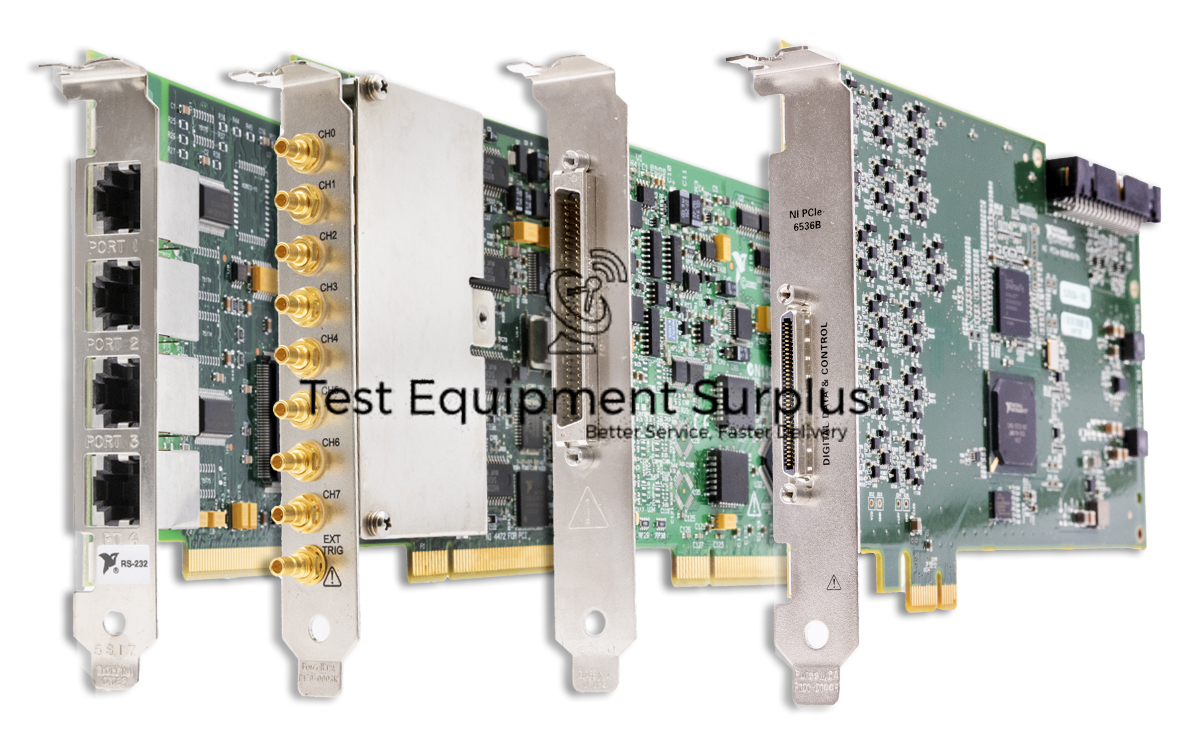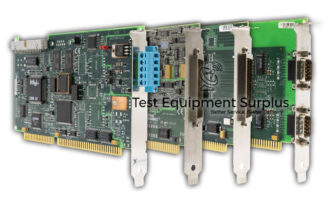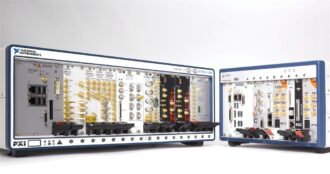Description
The National Instruments PCI-8516 LIN Interface Device, with its part number 781365-01, is a robust PCI-bus interface that supports six channels and is designed with an advanced encoder interface capable of handling up to 5 MHz A and B stage signals. This interface device boasts a 16-bit D/A output and is compatible with position mode servo drive or stepper drive for intricate soft-motion controls.
It is equipped with a myriad of advanced features, such as subcount for precise low speed feedback, a watchdog, encoder wire failure alert interrupts, and the ability to handle record and general digital inputs with position locks. Additionally, it supports position comparison and interrupts for digital CAM, as well as dual registration functions that are essential for printing applications.
The PCI-8516 is also well-suited for Controller Area Networks (CAN), finding its use in a diverse range of embedded applications. Its physical layer is highly adaptable, designed to meet various standards and includes a transceiver that seamlessly connects the CAN controller to the network.
With a 2-port high-speed LIN interface that operates at 20 kbit/s per port and includes onboard ATA6620 transceivers, this device ensures reliable communication. It is also compatible with the NI-XNET driver, which is perfect for developers working on frame and signal applications using LabVIEW, LabWindows™/CVI, and C/C++. The inclusion of an NI-XNET device-driven DMA engine further enhances its performance by minimizing message latency through direct memory access.
| Feature | Description |
|---|---|
| Product Name | National Instruments PCI-8516 LIN Interface Device |
| Part Number | 781365-01 |
| Interface | PCI-bus |
| Channels | 6 |
| Encoder Interface | Advanced, capable of processing up to 5 MHz A, B stage signals |
| D/A Output | 16 bits |
| Servo Drive Compatibility | Position mode servo drive or stepper drive for soft-motion controls |
| Advanced Features | Subcount for low speed feedback, watchdog or encoder wire failure alert interrupts, record and general digital inputs interrupt with position locks, position comparison and interrupts for digital CAM, dual registration functions for printing |
| Controller Area Networks (CAN) | Utilized in a wide variety of embedded applications |
| Physical Layer | Varies to optimize for different standards, with a transceiver connecting the CAN controller to the system |
| LIN Interface | 2-port high-speed LIN interface (20 kbit/s per port) with onboard ATA6620 transceivers |
| Software Compatibility | NI-XNET driver for developing frame and signal applications in LabVIEW, LabWindows™/CVI, and C/C++ |
| DMA Engine | NI-XNET device-driven DMA |
Question 1: Considering its capability to handle up to 5 MHz A and B stage signals and its range of advanced features, for what types of embedded applications is the National Instruments PCI-8516 LIN Interface Device particularly well-suited?
Answer 1: The National Instruments PCI-8516 LIN Interface Device is particularly well-suited for embedded applications that require precise motion control and timing, such as sophisticated industrial automation systems, advanced manufacturing equipment, and precision printing applications, due to its ability to handle up to 5 MHz A and B stage signals, its advanced encoder interface, position mode servo and stepper drive compatibility, as well as its array of features like subcount feedback, watchdog, encoder wire failure alert interrupts, and dual registration functions.
Question 2: What advanced capabilities does the National Instruments PCI-8516 LIN Interface Device offer for handling encoder signals and soft-motion control in embedded applications?
Answer 2: The National Instruments PCI-8516 LIN Interface Device offers advanced capabilities for handling encoder signals and soft-motion control in embedded applications, including a robust PCI-bus interface that supports six channels with an advanced encoder interface capable of handling up to 5 MHz A and B stage signals, a 16-bit D/A output compatible with position mode servo drive or stepper drive, subcount for precise low-speed feedback, a watchdog, encoder wire failure alert interrupts, and the ability to handle record and general digital inputs with
Question 3: What advanced capabilities and features are provided by the National Instruments PCI-8516 LIN Interface Device for handling complex motion controls and embedded applications?
Answer 3: The National Instruments PCI-8516 LIN Interface Device, part number 781365-01, is capable of handling six channels with up to 5 MHz A and B stage signals, offers a 16-bit D/A output, and is compatible with position mode servo and stepper drives for soft-motion controls. Its advanced features include subcount precision for low-speed feedback, a watchdog timer, encoder wire failure interrupts, digital input handling with position locks, position comparison, digital CAM interrupts, and dual registration for
Question 4: What are the capabilities and advanced features of the National Instruments PCI-8516 LIN Interface Device with part number 781365-01, and which programming environments is it compatible with?
Answer 4: The National Instruments PCI-8516 LIN Interface Device offers advanced capabilities such as handling up to 5 MHz A and B stage signals with a 16-bit D/A output, subcount for precise low-speed feedback, encoder wire failure alert interrupts, record and general digital inputs with position locks, position comparison, interrupts for digital CAM, dual registration for printing applications, and it is suitable for Controller Area Networks (CAN) with a transceiver for various standards, along with a 2-port high-speed LIN
Question 5: What is the purpose of the 16-bit D/A output on the National Instruments PCI-8516 LIN Interface Device, and how does it facilitate the control of servo drives and stepper drives in soft-motion applications?
Answer 5: The 16-bit D/A output on the National Instruments PCI-8516 LIN Interface Device serves to deliver precise voltage signals for controlling position mode servo drives or stepper drives, enabling fine-tuned movement and soft-motion control in applications that require intricate motion sequences and positioning.



